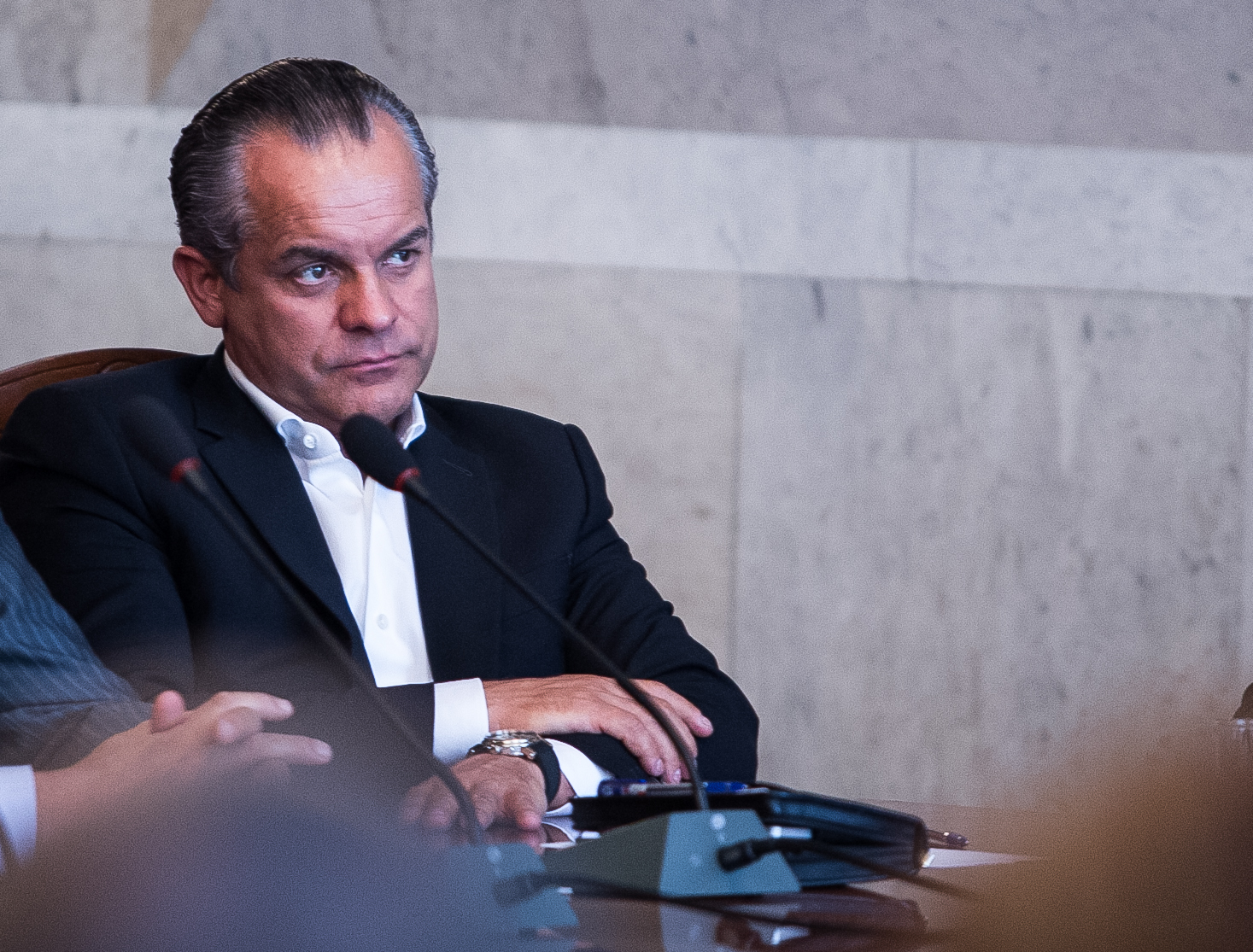
Moldovan Billionaire Overthrows Coalition Government From Within (Part One)
Publication: Eurasia Daily Monitor Volume: 12 Issue: 199
By:

Moldova seems about to become the second state in Europe’s East, after Georgia, to be captured by the wealthiest local businessman—in Moldova’s case, the billionaire Vlad Plahotniuc. He and Georgia’s Bidzina Ivanishvili share some common traits, including their lack of commitment to a European orientation. The mechanism of state capture in Moldova, however, is the nominally “pro-Europe” governing coalition, in which Plahotniuc’s Democratic Party (DP) is fighting against its pro-Western rival, the Liberal-Democrat Party (LDP).
Plahotniuc, the DP’s informal leader, has orchestrated a parliamentary no-confidence vote, forcing the government’s resignation. On October 29, Plahotniuc’s DP along with two opposition parties, the Communists and the Socialists, mustered 65 votes in the 101-seat parliament to remove Prime Minister Valeriu Strelet, whose LDP was the coalition’s largest, but has now lost that status. The prime minister’s removal automatically triggered the fall of the entire government. The government will now be re-formatted and Plahotniuc looks poised to control it, informally and unaccountably (Ziarul National, Jurnal.md, Unimedia, October 29–November 2).
The October 29 vote was the second phase of this intra-coalition coup. In the first phase, on October 15, Plahotniuc’s DP instigated the arrest of their long-time rival Vlad Filat, LDP’s chairman and financier. In this case, too, Plahotniuc’s team mobilized the Communists and the Socialists to vote for lifting Filat’s parliamentary immunity, together with two smaller groups (see below). Within literally one hour, breaching all relevant parliamentary and legal procedures, Filat was arrested by the anti-corruption authority, indicted by the chief prosecutor, and referred to a Chisinau court, all headed by DP nominees (see EDM, October 19).
This intra-coalition coup might have been executed practically at any time in recent months. Its specific timing—or, rather, the decision to proceed with it—requires separate consideration.
Plahotniuc’s DP was bent on destroying its larger rival within the “pro-Europe” coalition, Filat’s LDP, so as to monopolize informal power and its spoils. This process can be traced back to 2010, and it accelerated after 2013, linked to specific intra-coalition deals during those particular years. Ultimately, Plahotniuc’s team concentrated almost all the key pieces in its hands, including:
- a coalition-within-the-coalition, whereby Plahotniuc’s DP operates with the smaller Liberal Party (LP, ideologically pro-Romanian), against the coalition’s leading party, the pro-Western LDP;
- negotiations toward a merger of the DP with the Communist Party, which stakes its survival on the DP’s funding;
- “independent” parliamentary deputies under former prime minister Iurie Leanca, who defected from Filat’s LDP to align with Plahotniuc’s DP in a potential voting machine (DP, LP, Communists, “independents”);
- direct control of the Parliament’s chair (Plahotniuc’s godson Andrian Candu) and the Parliament’s legal affairs commission (chaired by Plahotniuc’s godmother Raisa Apolschi), who combined to clear the lifting of Filat’s immunity within minutes on October 15;
- DP appointees heading the General Prosecutor’s Office, the National Anti-Corruption Center, other law enforcement bodies, and key posts in the judiciary system, all of which were allocated to Plahotniuc’s party under the coalition agreement, and are selectively leaking “kompromat” (incriminating allegations, whether genuine or fabricated), primarily against the LDP;
- control of certain ministries and agencies (Ministry of Economy, National Bank, market regulatory bodies) that shielded or favored the expansion of Plahotniuc’s business interests;
- coalitions at the level of districts throughout the country, where the DP and its allies (LP, Communists, Leanca’s group) most recently ejected the LDP, in spite of the nominal coalition at the central level, and presaging the intra-coalition coup that just occurred in Chisinau;
- four television channels and other media assets, incorporated within the Plahotniuc-controlled General Media Group; and
- a diversified, partly nontransparent business holding, including banks, real estate, hotels, media (see above), and petroleum product marketing, with operations in the country and abroad, incorporated in Plahotniuc’s 100-percent-owned Prime Management holding, and generating the cash flows to support a political superstructure and state capture (RFE/RL, October 27).
Apart from those financial flows, which no Moldovan interest group could even remotely match, two other factors help to explain Plahotniuc’s progress toward the capture of state institutions.
One of those factors was Filat’s and some of his allies’ potential vulnerability to blackmail by DP-controlled prosecutors. While prime minister (2009–2013), Filat undertook two major attempts to remove Plahotniuc’s party from the governing coalition, so as to free law enforcement and the justice system from that party’s control. On both occasions, however, Filat retreated under threats of prosecution by DP-controlled agencies and defamation by the General Media Group’s channels. As LDP leader since 2013, Filat unilaterally observed an informal non-aggression pact with Plahotniuc’s DP, allowing it a free rein; even (or all the more) when three of Filat’s relatives were arrested as a warning to him this year.
The second factor aiding Plahotniuc’s success was the position of Moldova’s European partners. From 2010 to this day they insisted that the nominal “pro-Europe” coalition had to be maintained at almost any cost; and consequently, Plahotniuc’s DP had to be labeled as “pro-Europe” in spite of all evidence to the contrary. Their insistence stemmed partly from intra-EU politics, with a vested interest in “Moldova’s success story,” and partly from a sincere desire to advance the Moldova–European Union association process. By 2014, however, EU officials feared that Plahotniuc had become powerful enough to block Moldova’s European course or even shift it in a different direction, if his interests were not respected. Moreover, jettisoning Plahotniuc’s DP from this coalition would have resulted in pro-Russia leftist parties winning elections and taking over the government, possibly in a new coalition with Plahotniuc’s DP, or equally possibly resulting in sheer chaos. These concerns seemed to inhibit any steps by Moldova’s European partners to stop the misuse of this nominally pro-Europe coalition as a mechanism of state capture.




